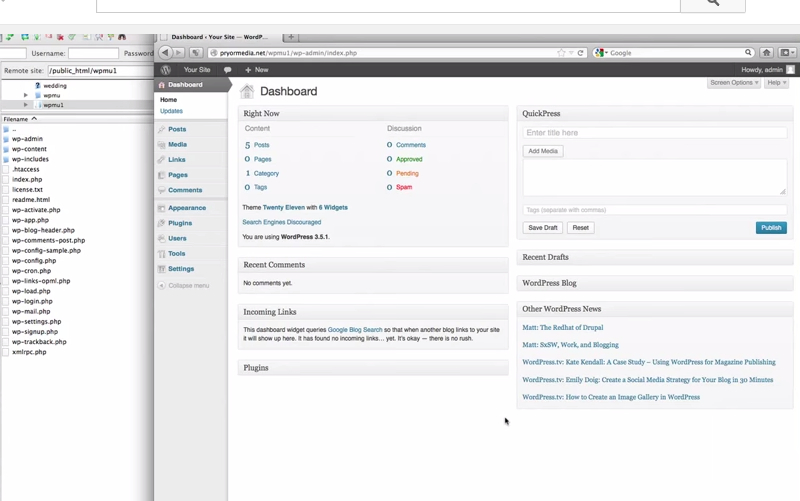Two primary methods of content management that are being used today are DotNetNuke (DNN) and WordPress. Trying to choose between the two can sometimes be a bit difficult because each product has some advantages and disadvantages that must be evaluated at the individual level. Here is a direct comparison of the two in several key factors to make the decision a little easier. Do you need to manage big data? Or do you need to manage content in a more personal way?
Usability: Advantage WordPress
WordPress utilizes an interface that is intuitive and easily managed. Most people who have at least a little bit of computer knowledge can figure out how to navigate through the options that are available to them without much difficulty. Everything is made available to users on one direct dashboard that can be updated at will. Preview options are available to ensure the updates will look as intended.
DNN does have an advantage in that it has been created to interface directly with the website design. This means users have to navigate through their own site in order to make the changes that are necessary to the content. Although this takes a little more time to accomplish, the specificity of change is a lot easier to accomplish. The only issue here is that DotNetNuke tends to be updated only once per year instead of through an ongoing evaluation process.
Is specificity better than the time savings experienced through a one-stop dashboard? Most people tend to choose the latter instead of the former. The one exception to this might be the user who collects large amounts of data every day and needs to process it in some way.
Platform: Advantage DNN
This advantage for DNN comes with a stipulation: it’s been written in the language that is used for the Cloud. WordPress, on the other hand, has been developed on the MySQL platform that is used by many developers and designers today. The actual platform that DNN offers is a bit better for general use, but the universal usage of WordPress means that many will choose it over DNN because so many other people are using it.
For those who work on the Cloud, however, DNN is a superior option. As more Cloud operations spring up and provide benefits, expect some transitions to DNN in the future. It provides large businesses the opportunity to manage their content in an effective way so that no one user is completely overwhelmed.
Customization: Advantage WordPress
WordPress offers over 37,000 plugins and thousands of additional themes which allow a website to be 100% customized. Some of these themes and plugins are free, while premium options can be priced as high as $50. Most are pretty easy to install and although they typically need to be updated individually when WordPress updates their platform, the overall positive experience usually outweighs any negatives that are experienced.
DNN offers users no free plugins or themes. Furthermore, the options that are available through DNN must be updated through third-party modules. It creates a fairly cumbersome experience for new users because the content management is based on volume and specificity of use more than it is for general purposes.
Accessibility: Advantage WordPress
If you are using DotNetNuke, then you can only update your content through Internet Explorer – which Microsoft is retiring. WordPress can be accessed through virtually any browser or operating system. WordPress also makes it easy to share posts and pages to your social network, with plugins that provide a direct feed to many social activities that allow visitors to become an instant part of your community. DNN offers no social networking compatibility whatsoever.
As for business accessibility, DNN is far superior when it comes to content management. It solves big data problems and allows consumers to mine for data nuggets that can turn into future profits. WordPress is more about the small- to medium-sized business or personal site that doesn’t have big data as a top priority.
Most users are going to find the ease of use with WordPress to be superior. With that being said, those who use Cloud applications will see DNN as superior in the DotNetNuke vs WordPress debate. It boils down to what your specific usage needs happen to be. DNN can solve specific needs for a niche group of internet users. WordPress is more of a general solution for everyone, which is why it ultimately has the upper hand for many.








